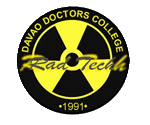Log in
Latest topics
» Anniversary of the Discovery of X-Rayby Admin Sat Nov 05, 2011 10:51 am
» First time members click here to join the fun
by Samjaypineda Fri Nov 04, 2011 10:40 pm
» RADICAL:THE COMIC SERIES
by muyco Tue Aug 16, 2011 1:35 pm
» EdmefoWkes
by Guest Tue Aug 02, 2011 4:52 am
» RT Day with other RT School ( s)
by Polon PearL Thu Jul 07, 2011 9:16 pm
Who is online?
In total there are 2 users online :: 0 Registered, 0 Hidden and 2 Guests None
Most users ever online was 82 on Mon May 31, 2021 1:28 pm
Nuclear Medicine
radiography101 :: Updates :: Updates
Page 1 of 1
 Nuclear Medicine
Nuclear Medicine

What is a Nuclear Medicine Scan?
The purpose of this diagnostic study is to provide an image that
evaluates organ function, and locates disease or tumors. Nuclear
scans also show the size, shape and position of the organ being
scanned. After you are given a low dose of a radioactive substance
(which may be referred to as a tracer or radionuclide),

images are able to be obtained with a special camera based on
the energy produced by the radioactive substance. The extent to
which the tracer is absorbed by a particular organ or tissue may
indicate the level of function of that system. A diseased or poorly
functioning organ will emit a different signal than a healthy
organ. One of the unique features of a nuclear medicine scan is
that it shows the “function” of the organ or tissue
being evaluated as opposed to just a picture. This helps to determine
if the organ is working properly.
Nuclear medicine scans can be used to assist your Physician in
diagnosing disease, tumors, infection and other disorders by evaluating
organ function. Some of the specific reasons it may be used include:
- Analyzing kidney function
- Image blood flow and function of the heart
- Scan lungs for respiratory and blood flow problems
- Identify blockage of the gallbladder
- Determine the presence or spread of cancer
- Measure thyroid function
- Evaluate bones for fracture, infection, arthritis or tumors
- Locate presence of infection
PREPARATION AND SPECIAL INSTRUCTIONS
Instructions will be given to you at the time of scheduling,
whether by our scheduling department or your physician. Wear loose,
comfortable clothing for your test. Discuss with your physician
if you are claustrophobic or worried about lying still during
the scan.

The radioactive material used is made precisely for the time of
your test, so it is very important that you be on time.
Inform the technologist of all medications you are currently
taking. There are medications that could possibly interfere with
the radioactive materials given for the exam. Also, be sure to
mention any recent imaging studies involving injected contrast
media(dye) and oral or rectal contrast (used in gastrointestinal
studies) since they could interfere.
If there is a chance that you may be pregnant, notify your physician.
WHAT TO EXPECT
Depending on the area of the body being scanned, you may need
to wear a patient gown. Remove all jewelry, dentures and other
metals that may affect the scan.
 Prior
Prior to the scan, you will be given a small amount of radioactive material,
either by injection or orally. As this moves throughout the body,
it can be traced by using a special camera called a gamma camera
and a computer. It eventually collects in the organ being examined
and gives off special rays called gamma rays.
It is possible that you will come in first for the administration
of the tracer then return later for the actual scan. Sometimes
the entire procedure may be done during one visit. There are also
exams that require multiple visits in a day or over a few days.
The actual imaging time varies, but generally less than one hour.
Prior to the exam, you may be asked to empty your bladder. As
the tracer passes through the body, it eventually ends up in the
bladder. If the bladder contains urine and tracer elements, it
could possibly block the view of part of the pelvic bones if you
are having a bone scan.
 When
When the exam starts, you will lie on a special exam table and be made
as comfortable as possible. It is important for you to lie still
for the study. The gamma camera may be close to the area of your
body that is being examined.
Once your nuclear medicine scan is complete, you may resume normal
activity and eating habits. The radioactive material usually passes
through the urine or stool within 48-72 hours.
After being injected, it is advisable that you stay at least ten feet away from children 18 years of age or younger
and/or pregnant family members for a period of 24 hours.
Your test will be reviewed by one of our radiologist who specializes
in nuclear medicine. Once the films are reviewed, a written report
will be sent to your physician.
®krypton- Posts : 11
Join date : 2009-08-10
radiography101 :: Updates :: Updates
Page 1 of 1
Permissions in this forum:
You cannot reply to topics in this forum|
|
|

